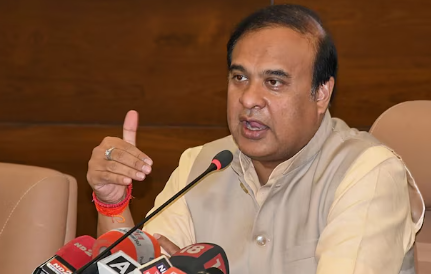Assam Assembly Passes Bill Regulating Muslim Marriages and Divorces
The Assam Legislative Assembly passed a new law called the Assam Compulsory Registration of Muslim Marriages and Divorces Bill, 2024. This law is designed to address serious issues like child marriage, marriages without mutual consent, and polygamy. It replaces an old law from 1935, bringing in new rules to protect vulnerable individuals, especially women and children.
Repeal of the 1935 Act
The old law, known as the Assam Muslim Marriage and Divorce Registration Act of 1935, allowed some harmful practices. For example, it permitted child marriages and didn’t require the mutual consent of both people involved in the marriage. The government decided to repeal, or cancel, this outdated law because it supported these practices, which are no longer acceptable. The problematic aspects of the old law were mainly found in Sections 8 and 10.
Implementation of the New Law
The new Bill introduces clear rules that must be followed for a marriage to be registered legally:
Age Requirements: The woman must be at least 18 years old, and the man must be at least 21 years old.
Consent: Both people must freely agree to the marriage without any pressure.
Residency Requirement: At least one of the people getting married must have lived in the district for at least 30 days before the marriage can be registered.
Registration Process
Under the new law, couples need to inform the Marriage and Divorce Registrar about their intention to marry at least 30 days before the wedding. This waiting period allows time for any objections or concerns to be raised. If there are objections, the Registrar is responsible for investigating them to ensure everything is legal and proper.
If a registering officer finds out that a marriage involves underage individuals, they must report it to the Child Marriage Protection Officer. This step is important to prevent child marriages and protect minors. The new law also holds registering officers accountable. If an officer knowingly breaks the rules set by the Bill, they could face serious consequences, including imprisonment and fines. This strict enforcement aims to ensure that the new regulations are followed properly.
Relation to Muslim Personal Law
The new law works alongside existing Muslim personal laws but has caused some tension. One area of conflict is the definition of valid marriages, especially concerning minors. The Supreme Court is expected to review how this new law interacts with the Prohibition of Child Marriage Act, 2006, which bans child marriages across India.
Debate in the Assembly
When the Bill was being discussed in the Assembly, there were differing opinions. Some members argued that instead of completely replacing the old law, it could have been amended or improved. However, those in favor of the new Bill argued that it increases accountability and reduces the risk of child marriages that were previously facilitated by kazis (Muslim registrars).
The Assam Compulsory Registration of Muslim Marriages and Divorces Bill, 2024, marks a significant change in the legal framework for marriage registration in Assam’s Muslim community. By setting strict guidelines and placing the registration process under government supervision, the new law aims to create a fairer and more responsible system that protects vulnerable individuals, especially women and children, from harmful practices.
Month: Current Affairs - August, 2024
Category: Legal & Constitution Current Affairs







